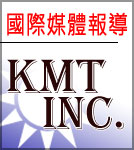| ::: | :::
國際媒體報導
Taiwan moves to force return of opposition assets(Financial Times,2006/10/31)張貼日期:2006/10/31
Taiwan moves to force return of opposition assets
By Kathrin Hille in Taipei Published: "The Financial Times(31 October 2006)" www.ft.com
The move makes it clear that the KMT, which ruled Taiwan through an authoritarian regime for decades before the island's democratisation in the 1990s, will have to resolve the issue if it wants a chance of returning to power. Ma Ying-jeou, KMT chairman and likely presidential candidate, said he supported efforts to regulate party assets but rejected the draft legislation proposed by the ruling Democratic Progressive Party (DPP). "They are trying to make us pay for the past," he said. Huang Yu-chen, KMT spokesman, said: "Chairman Ma knows this issue is our big burden and will drag us down unless we deal with it once and for all." The next presidential election is in March 2008. When the KMT came to power in 1945, Japan's defeat had just put an end to 50 years of colonial rule in Taiwan. The KMT took over land, buildings and businesses that had been registered to the colonial government. These assets were then freely re-assigned not only to various branches of government but also to the military and the KMT. At the time there was no clear separation between armed forces, party and state. The KMT built its assets into a sprawling business empire, which in time became the symbol of corruption that led to the party's downfall. The KMT's net worth peaked in the 1990s at T$60bn ($1.8bn, €14bn, £950m) but has now fallen to T$27.7bn. The party has so far reluctantly returned property valued at T$2.1bn to the state but the DPP argues it owes much more and uses the issue against the KMT in every election. Until now the opposition-controlled parliament had blocked the DPP's attempts to legislate for the assets' return. But a power struggle meant the People First Party, a KMT breakaway faction, this time voted with the DPP on the proposal. The KMT has also started to come under pressure from a protest movement which for two months has tried to force Chen Shui-bian, president, out of office over corruption allegations. This week, the organisers responded to waning public support by saying they would widen their focus to include structural reforms aimed at curbing corruption, including making the KMT return the assets. Mr Ma said the KMT would sell Central Investment Holding, the company managing the party's remaining assets, by the end of June 2007. The proceeds would be used to pay off retiring party workers. "If there's anything left, we will put it into a trust," Mr Ma said. |




 歡迎連結
歡迎連結